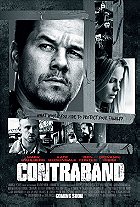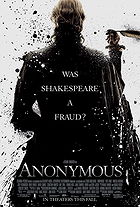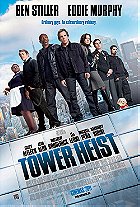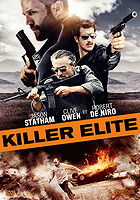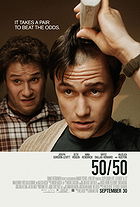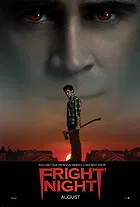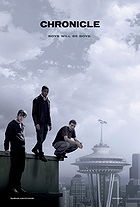JCVD is essentially Being John Malkovich meets Dog Day Afternoon. It's a stylish heist thriller in a meta-filmmaking wrapper as well as a heartfelt, soul-searching drama that asks us to consider Jean-Claude Van Damme as more than just a dumb hunk of muscle. Back in the '80s and '90s, Van Damme was one of the most reliable action heroes out there, but he soon dropped out of the spotlight and ended up in straight-to-video purgatory. After so many horrible Van Damme movies in recent years, JCVD is a breathe of fresh air. This is easily the star's best movie in over a decade, and it doesn't even feature Van Dammage playing a fictional action hero - instead, he plays a thinly fictionalised version of himself, which (ironically) may prove to be the greatest role of his career.

The Jean-Claude Van Damme at the centre of this story is not a popular, rich action star but rather a washed-up, past-his-prime actor unable to land any decent gigs anymore. Pushing 50, he just lost a custody battle with one of his former wives, and his financial situation is terrible. Trying to get his life back together, Van Damme returns to his hometown in Belgium where he's still recognised as an icon. Unfortunately, during a banking errand he walks right into a robbery in progress, and the local authorities mistake Van Damme as the ringleader of the robbers. As the situation intensifies, Van Damme reflects upon his life and ponders his mistakes, and a dichotomy emerges between his on-screen hero persona and who he is in the real world.
JCVD begins with an amazing long take which tracks Van Damme as he does the type of things he got famous for: killing bad guys, recuing people and doing roundhouse kicks. But this opening sequence flaunts the only action contained within JCVD. One may think that the plot sounds like an ideal setup for a typical Van Damme actioner in which he saves the day and becomes the hero, but JCVD is not your typical Van Damme vehicle - it's not even an action movie at all. Instead, writer-director Mabrouk El Mechri has crafted a character study that observes Van Damme dealing with the types of situations he handles in movies all the time. The concept works remarkably well, and not just as a gimmick or a joke. It does work as a comedy too, though - Van Damme is remarkably game here, and it's clear that he has a sense of humour about himself due to the script's self-referential material (we learn that Van Damme loses a movie role to Steven Seagal, who secured the part by agreeing to cut off his ponytail).

More than anything else, Mabrouk El Mechri's movie seeks to humanise the iconic Van Damme. The film acknowledges the man's personal and professional blunders, yet we're reminded that behind the troubled movie star is a multifaceted human who makes mistakes, just like all of us. As the hostage storyline plays out, flashbacks illuminate recent events in Van Damme's life that paint an affecting portrait of the nature of fame. Reinforcing these themes and messages is a single shot towards the climax that observes Van Damme delivering a stunning direct-to-camera soliloquy in which he bares his soul and laments his shortcomings. While talking, he's lifted above the movie's set until there are studio lights behind him, boldly breaking the fourth wall and tearing down all protective facades to reinforce that Van Damme's words are honest and frank rather than part of a fictional universe. Instead of highlighting how delusional Van Damme has been, JCVD asks us to sympathise with this broken man and root for him to get his life back in order.
Along with the other B-movie action stars like Chuck Norris and Steven Seagal, Jean-Claude Van Damme's acting has always been ridiculed as laughable and wooden. He has starred in countless movies, but the man has never shown any actual acting talent; instead, he's the same one-note hero all the time. In JCVD, on the other hand, Van Damme's performance is a revelation. Clearly more comfortable speaking in his native tongue, he's believable, sympathetic and surprisingly charismatic here, doing far more than just playing a surface-level version of himself. Who would've thought that the Mussels from Brussels' best acting performance would be as himself?

On top of everything, JCVD is a stylish-looking movie - El Mechri and cinematographer Pierre-Yves Bastard (his real name, I swear!) are gifted visual stylists, and they gave the film a distinctive look of bleached-out colours. The flick's only real problem is that the story starts to run out of steam by the second half, and a few scenes set inside the post office grow a tad tedious. This aside, JCVD is an excellent movie, and it should be seen if for no other reason than it contains Jean-Claude Van Damme's most nuanced and powerful performance to date.
8.2/10
 Login
Login
 Home
Home 183 Lists
183 Lists 1670 Reviews
1670 Reviews Collections
Collections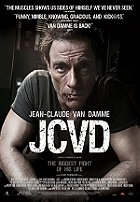
 0 comments,
0 comments, 